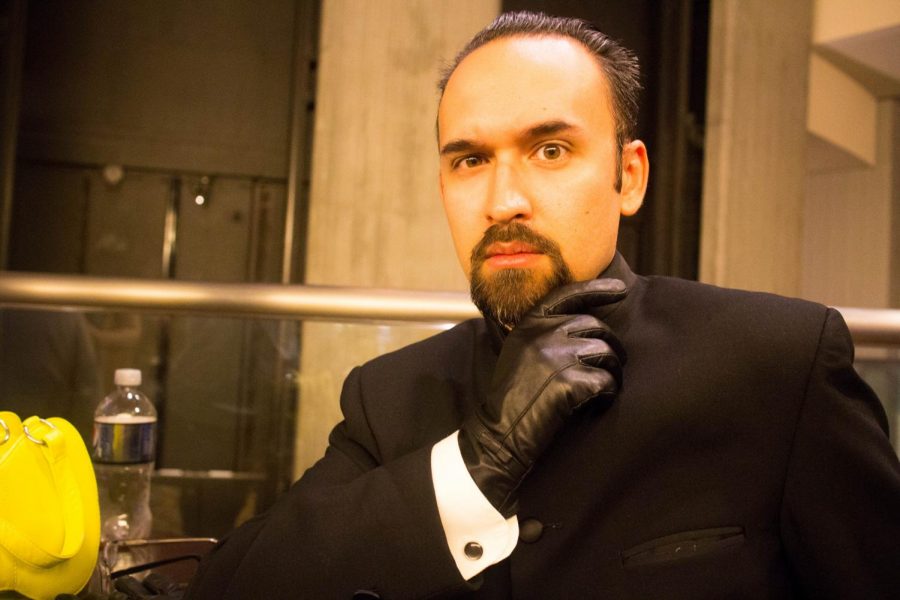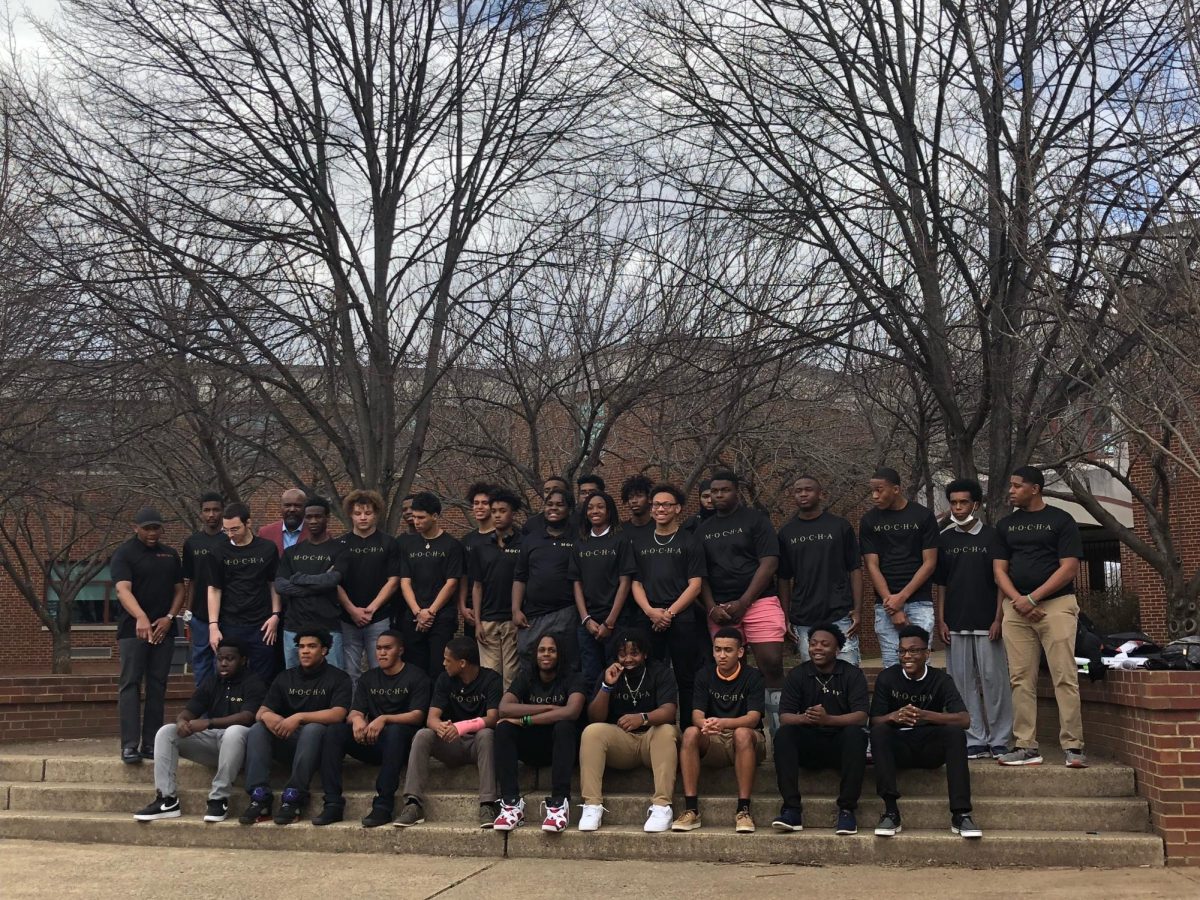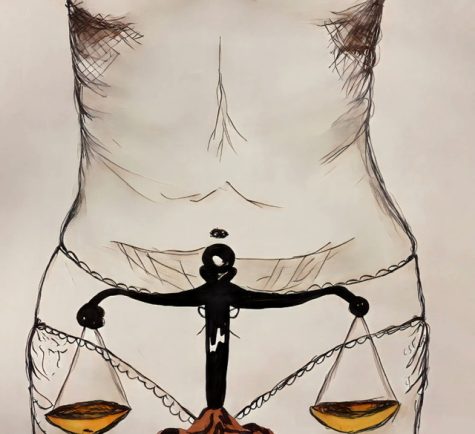Doctor Who Season 8 (1971) Review // Recommendation
A Doctor Who fan dressed as the Master, a character in this season.
April 30, 2020
Context for those unfamiliar with Doctor Who
In the classic era of Doctor Who, stories were divided up into multiple episodes, in a serialized fashion. The show follows The Doctor, the protagonist, on various adventures through space and time. Since Spearhead from Space, he’s been exiled to Earth and aiding the monster fighting-military organization, U.N.I.T. Other main characters are U.N.I.T. members, Jo, The Brigadier, Benton, and Yates, and the villainous “The Master”. This review has been abridged, links to the unabridged five-part review are linked at the bottom of this article.
Season 8 has a different flavor than Season 7. Season 7 featured long discussions with scientists and military personnel about political matters. This season is more about action. It isn’t a lot more, but its distinction is easily detected. Much of Season 7 was created in the 60’s. This season is all 70’s and you can tell, from the costumes to the props. It feels like you’re in a new era. Seasons 1 to 5 of Doctor Who felt more or less the same. Season 6 changed up the show, then Season 7 changed it all some more, and now this season did some final shifts before settling on a new style. The stories are shorter and more grounded in terms of themes. There are fewer serials with more than one writer or director. We also get a bit more of the Doctor’s famous spaceship, the TARDIS. It was basically set decoration in the last season.
Terror of the Autons – Four Episodes
The Doctor’s assistant from Season 7, Liz Shaw, is referred to as having left off screen. In real life, some people behind the scenes didn’t like that his assistant was so smart. Many earlier and later companions are noticeably less intelligent than the Doctor. Assigned to the Doctor is a young adult woman named Jo Grant, who immediately makes a poor impression on the Doctor. The Doctor complains of her to U.N.I.T.’s Brigadier, known as “The Brigadier”. He says that she was chosen as the Doctor needs “someone to pass you your test tubes and tell you how brilliant you are.” There have been numerous discussions of why the Doctor travels with people and why he travels with the kinds of people that he does. As mentioned before, he usually picks those less intelligent. What does this say of our protagonist? The Doctor at points is depicted as vain, while other times he seems disinterested in himself. The Doctor often tries to make himself look good, but is he so good at it if people like the Brigadier can see through him?
One notable aspect of the story is that it introduced the Master, one of the most popular Doctor Who characters of the whole lot. This story doesn’t treat him differently than most other antagonists in terms of importance. Unlike many villains, I like his clear headedness and logical thinking. He simply goes on his way and tries to reach his goal. He takes out obstacles as quickly and efficiently as possible. Here, he allies with the Autons, a menace last seen in Spearhead from Space. Unfortunately, they’re not utilized well in Terror, in contrast to how well they were handled in the previously mentioned story. The most notable problem is that here they talk. They sound silly and were much scarier when they didn’t speak.
I like the contrast between the new characters and the characters from previous seasons. The Doctor, The Brigadier, and Benton all are just moving along with their business as usual, trying to act normally. The new characters, Jo and Captain Mike Yates are trying to imitate that, but aren’t as successful. Jo feels a bit alone and separate from the rest, but Yates reassures her. Yates has more clout with U.N.I.T. than Jo and helps bridge the gap between her and the others. It makes sense that characters aren’t treated the same. Would you rather trust an experienced person or an inexperienced person? That doesn’t mean the inexperienced person won’t go on to do well. We all start off as inexperienced, but that doesn’t mean we should or would be respected from square one.
While Yates is a recurring character, Jo is a main character. New companions can sometimes be sidelined by other events in an adventure. Many serials have one off characters and in the 60’s, it wasn’t too rare for a typical one-off character to decide to go with the Doctor at the end and surprise! They’re now a main character. This story really gives you a feel for Jo. She has a larger role and amount of focus in this story than most other companions. Notably, she has a monologue about how U.N.I.T. isn’t appreciating her abilities to Yates. Companions don’t usually get monologues, those are for the Doctor and sometimes a villain. It’s obvious why Jo is one of the most beloved and known companions.
This serial succeeds most at subtle moments and character expression. Someone at one point says to the Doctor, “Gentlemen don’t discuss money.” Amusingly, the Doctor replies, “Gentleman never talk about anything else.” This shows a bit of his perception on human behavior. The Brigadier silently observes the doll, while Yates asks of it and pokes at it. This shows how the two react to the situation at hand.
The story progresses simply and efficiently for the most part, but the rushed and unsophisticated ending don’t do it any favors. The serial never strives for more than “simple and efficient”. In many regards the affair is quite average and so far the weakest 70’s serial. Fortunately, it’s not pandering or insulting and is a fair enough watch.
The Mind of Evil – Six Episodes
Season 8 continues. Something I didn’t expect was for there to be a bit of a story arc. Modern Doctor Who is no stranger to the story arc, but Classic Who kind of was. There’s only been a handful of Classic arcs ever. This one seems to have fallen under the radar, but that’s mainly due to the fact that it’s just my interpretation. Who knows if it will continue after this serial? Something introduced last time that I thought would be a plot point all season at least seemingly got resolved in this serial. The story arc of the season is essentially the characters and their relationships. Someone our protagonist, the Doctor, knows so well has returned to cause trouble, his old friend/foe the Master. He was causing trouble last serial and now he’s back for this one too! The Doctor is aided by a new friend, Jo, also introduced last serial, with his old friends at the military organization, U.N.I.T. The recurring members are The Brigadier, Benton, and Yates. Something special with Jo is how there seems to be more of an attempt to make her a rich character as opposed to many past companions of the Doctor that didn’t get as much development as her.
In The Mind of Evil, The Doctor and Jo go to a prison where a new device has been invented. A scientist named Emil Keller invented a little machine called the “Keller Machine”. It does something to prisoners’ brains that makes them non-violent. The Doctor and Jo witness a demonstration on a large, intimidating guy. The treatment doesn’t go as planned, but apparently everything is fine. When that guy, named Barnham, recovers, he has the mind of a child. Despite a few comments throughout the serial about the immorality of such a practice, it’s never detailed and there’s no closure on it. You’d think that such a blatant and obvious comparison to the practice of lobotomy would warrant a detailed discussion, however that’s not the case here. This procedure is barely part of the plot. The Keller Machine does serve a large focus in the story, but Barnham is the only person to receive the procedure that we see. It is said that other prisoners received the procedure before the start of the serial. The discussions of the thing’s morality are interesting, but they were jammed into this story. Go find your own episode!
To indulge more in my detection of an arc, during the presentation on Barnham, the Doctor rudely and openly speaks during the demonstration. There have been numerous times in the past where the Doctor has been rude and uncooperative, though as a whole his character is portrayed more or less contradictory to that. Sometimes he’s the definition of kindness. Is Jo and The Master becoming involved in the Doctor’s life making him ruder? In numerous serials, including this one, he’s frustrated at the incompetence of other people in the situation. Something that’s more common in the Modern series, but sneaking around here is that it seems the Doctor thinks he’s both brilliant and an idiot. In Doctor Who and the Silurians, he fails to prevent something at the end that upsets him greatly. In The Massacre, he’s depressed by his various companions leaving him. However, in stories like Inferno, he feels he is very knowledgeable of how to solve the threat and anyone that disagrees with him is foolish. This is changed a bit with the Master. He seems to at least respect the Master as intelligent, even if he is using his intelligence to be villainous.
The director of this serial, Timothy Combe, also directed Doctor Who and the Silurians. His style is detectable. He is a good director for moving. We see many angles and creative shots from him. One highlight is a scene in Episode 4 when the camera is on the Doctor, then there’s a fade to the Master. I’m a big fan of the “Fade” transition. Sadly it isn’t used much in Doctor Who. The dialogue and acting are also quite sharp. There’s numerous witty lines spoken in clever manners.
The Claws of Axos – Four Episodes
As a kid, the Doctor I was least familiar with was Jon Pertwee. I heard that this story was really good, so I picked it up. I didn’t like it much then. Now that I’ve rewatched it, I see it’s not particularly liked (or disliked) by the fandom… but what do I now think of The Claws of Axos?
All of our old favorites are back, The Doctor, Jo, The Brigadier, Benton, Yates, and their good ol’ base, U.N.I.T. The opening is very good. We see shots of radars and scanners detecting a comet of sorts. We then see people discussing what they’re seeing. This is very atmospheric. It gets you wondering what’s going on. Mr. Chinn, the head of a committee inquiry into U.N.I.T., demands papers on the Doctor’s identity from the Brigadier. The Brigadier doesn’t give any. This does a good job of showing the kind of person Mr. Chinn is. He’s upset at not getting what he wants and he’s concerned with the unknown. In the first episode, we’re dealing with the unknown, this comet. Next up, we’re introduced to who is now one of my favorites one-off characters, Bill Filer, an American with a thick Texan accent, sent to track down and deal with the Master. This guy always has his gun on him and acts just like a stereotypical Texan. He’s absolutely great.
Something I picked up on was how in Episodes 1 and 3, the Doctor doesn’t have a lot to do. U.N.I.T. and the guest characters usually are the ones dealing with the situation at hand. In Episode 1, the Doctor is mostly observing the other characters and the problem. In Episode 2, he acts on what he knows. In Episode 3, he’s away from the group dealing with the problem his own way and gaining more info. In Episode 4, he acts once more. The Doctor is very much a Patton type of character. If what you’re saying makes sense, he has no problem listening to you, if what you’re saying doesn’t make sense, he has no problem going against you.
This serial’s pacing is faster than typically. If a mystery is introduced, it’s solved pretty quickly. Sometimes an element of a story would take several episodes to be concluded, but here we find out what the comet is quickly and things about it fast. While a bit of tension would be nice, this story doesn’t suffer much from this. It clearly just wants to move along to other things which are still interesting and developing the narrative.
Episode 1 is good. Despite seeing a lot of the comet, it’s so weird, spooky, and mysterious that seeing it doesn’t spoil its mystique. This episode’s main purpose is to introduce the terror of the threat. You can feel it based on simply not knowing what is going on. A lot of the cliffhangers are awkward technically in the 70’s stories I’ve seen so far. The episodes end very suddenly. This episode’s cliffhanger has a dramatic music cue, which leads into the credits. That would become common practice for cliffhangers. It looks and sounds much better.
This story generally avoids clichés and absurd developments. Fight scenes are common in Who, however here they’re good. There are many moments, mostly in Episode 3, where the story loses itself in the stupidity that’s all too tempting to go to. Things are a bit too slow and a bit too convenient. While this story can be quite silly with the spaghetti monsters among other things, the drama and character development vastly make up for it.
The Claws of Axos brilliantly handles a lot of different elements. Nothing is ignored or forgotten, if something stops being relevant, there’s a good reason and it comes back around. The overall story is dramatic and character based, but there’s sharp lines and acting that bring the whole thing to life. This story has brought the story of the Third Doctor to another level.
Colony in Space – Six Episodes
This one’s special. The serial starts with some Time Lords discussing the Doomsday Weapon, something only they and the Master know about. It must not be used. They realize they must get the Doctor involved. The Doctor and Jo go inside the TARDIS, the Time Lords make it take off and they’re sent to the planet Uxarieus. This is quite a big deal. This is the first time since 1969’s The War Games that we’ve had an adventure off-Earth.
Colony in Space is a fair romp. It’s a story one has probably seen a few times. An oppressed group, the colonists, is bothered by an overpowered and authoritative group. Even ignoring other movies and shows, this is the plot of one of the most famous classic Who stories, The Daleks. This is not to say that Colony should be more original, as it’s a much different flavor. The two stories were produced and released almost a decade apart.
In terms of the quality of the story, it’s average. When the character, Norton, is introduced, he’s unwell, and his performance is amusingly bad. He speaks of something bad that had happened to him, not that you really believe it. Another bad performance is for the character Jane Leeson, who we’ll get to later. A lot of the sillier bits of dialogue are poorly delivered. Generally this is stuff that’s formality for a story like this. Whenever characters have a civil disagreement, the stock lines are plentiful. The regulars and some of the more prominent guest actors do a good job with acting. A notable guest actor is John Ringham, though in his forties at the time, has an aged performance. Older actors are generally the best in Doctor Who.
Admittedly, the arguing dialogue is not all bad. Ringham’s character, Ashe, and another colonist, Winton, have some good back and forths, though the stock arguing lines are not resisted. The writing and directing are also unimpressive, but not bad. This story has two big successes. One is a spoiler and the other is the adventure. The serial is mostly a big battle. Characters get split up and have to go through mud and strife. Characters go on journeys and make discoveries. Characters learn surprising things. Colony is never boring. It wants to be a dumb action movie and that’s what it is. The story and pacing are good. The tension slowly stretches throughout the story. Ashe and Winton recurring disagreements paint a lot of their characters and the situation. Most of the characters in this story are pretty well written.
We see more characterization of the Doctor. He gets some standard quippy lines like, “No. No, it’s quite healthy. Similar to Earth before the invention of the motor car.” I like how formally he speaks lines like that. The Doctor is rude to a character and is generally condescending. The Doctor looks forward to his exile on Earth as this predicament is dangerous and stressful. It’s an interesting juxtaposition to normal, where he wants to leave Earth. Jo once more is not stopped by the bologna she sees. She snoops around and speaks to the colonists, trying to convince them to be more active.
There’s something I really liked about this serial and it wasn’t obvious at first, but then I realized… this is Blake’s 7. Blake’s 7 is a classic BBC sci-fi drama about a group of seven fighting a large, authoritarian government. Just about every good thing and bad thing about Colony in Space is in Blake’s 7. I love both that show and this serial for their many triumphs and their many faults. One notable flaw is that the Doomsday Weapon is barely involved, despite how importantly it’s treated. This serial is a typical fun runaround and I can watch that junk all day.
This story loves captures and escapes. The same characters are captured and then escape several times. It’s almost comical how much that’s done. While that’s a flaw, it’s hilarious to watch. Colony loves being good, it loves being bad, and I love it for that. I thought 1969’s The Dominators was the best dumb Doctor Who serial, but it’s been dethroned.
The Dæmons – Five Episodes
We’re at the end of Season 8. It’s been a fun journey. Does it end on a bang or a whimper? Well, The Dæmons is more wimp than bang. I wouldn’t call it bad, but it’s certainly the weakest Jon Pertwee story I’ve seen so far. The serial seems dependent on the audience thinking the monsters are terrifying, but they come off as laughably silly. The one that speaks sounds like a typical human badly imitating a threatening beast, not a threatening beast in and of itself. The monsters also follow the trend of just looking like a guy dressed up a bit, something that’s been more common this season.
We see more development between the Doctor and Jo. The Doctor references that he’s trying to turn Jo into a scientist. That’s quite interesting. In Terror of the Autons, the Doctor was upset that his previous assistant, Liz, left as she was a scientist. He seemed content with Jo not being the brightest, but now he’s trying to change that. It’s very eye-catching that he is going to attempt to change how someone is to be smarter than before. This is never continued in this story, but who knows what will happen in future ones?
The characters are fun. They all work off each other very well. I’d watch the Doctor talk to Jo about science or his history with the Master. I’d watch the Brigadier, Benton, and Yates talk at their lunch break. It’s nice that Yates and Benton get a lot to do this serial, though the Brigadier amusingly has very little to do and he knows it. The others are deep in the adventure, while he’s off to the side, bummed that he’s not doing more.
There’s plenty of flaws in The Dæmons, but I don’t mind too much. This is a comfortable end to the season, it ends light and relaxed. This serial compliments the kind of thing people were looking for in 1970s Britain. Even in 2020s America, this is a good story to just put on and relax because of how homely everything is. The setting contains buildings that look like they’re from paintings, green grasses, and simple 70s people. Despite the big, darkly lit monster, and the incantations, it all plays in a comforting way. How does it pay off the season’s stories?
OVERVIEW
The Doctor is not a military person. Throughout this season and the last, he’s been forced to work with one. Perhaps due to this, he’s become snippier with how he treats people. Admittedly, this probably is not intended. The writers likely just wanted the Doctor to have funny lines, and thus, there’s not a “resolution” to that, which it doesn’t need. The Doctor seems content at the end with U.N.I.T. being in control. In this story, he sharply tells Jo to follow what the Brigadier says. At the end, he lets the military group handle the Master.
The Master doesn’t really learn anything. He often makes similar mistakes in different stories. Which is a shame, as the writers seem to be trying to make him seem intelligent, such as in The Claws of Axos, where he shows off his ability to use complex science. There’s a formula this season in how the day’s won and lost for the Doctor and the Master. Similar beats occur, though it’s not too noticeable as it’s mixed up a little. The most interesting part of the Master in this season is how he works off the Doctor. They both respect each other, but they also don’t agree on anything. It’s a shame that their story couldn’t be concluded, as the Master’s brilliant actor, Roger Delgado, died before it could be filmed.
In the beginning, the Doctor doesn’t like or respect Jo. She tries to get his respect, but fails. Throughout the season, the Doctor seems more comfortable with his “situation”. Not just in being with Jo, but with U.N.I.T. He’s begun to quip with the Brigadier more. He has more positive moments of laughter and levity with the U.N.I.T. crew. Jo never changes too much, but she does help more, which is what I think the Doctor may like about her. In the opening serial, Terror of the Autons, the Brigadier says the Doctor doesn’t want a smart assistant, but a dumb one that can say how smart he is. While the Doctor disagreed with him, this season seems to prove him right. The Doctor enjoys his adventures with the dimwitted Jo, but she can help sometimes. All of the cast will be back for more adventures, though absences will become more and more common. This is the only season with the Master as a regular. Everyone will be back for more development and stories in Season 9!
Doctor Who (Classic) 054: Terror of the Autons // Season 8 (1971) Review Part 1
Doctor Who (Classic) 055: The Mind of Evil // Season 8 (1971) Review Part 2
Doctor Who (Classic) 056: The Claws of Axos // Season 8 (1971) Review Part 3
Doctor Who (Classic) 057: Colony in Space // Season 8 (1971) Review Part 4
Doctor Who (Classic) 058: The Dæmons // Season 8 (1971) Review Part 5
More reviews: https://thefilmediary.wordpress.com/














